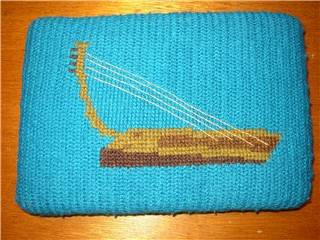Advent Calendar 2008
Index | November:30th | December:1st | 2nd | 3rd | 4th | 5th | 6th | 7th | 8th | 9th | 10th | 11th | 12th | 13th | 14th | 15th | 16th | 17th | 18th | 19th | 20th | 21st | 22nd | 23rd | 24th | Christmas |
25th December : Christmas

This lyrical piece of writing came from a Sacred Space newsletter.
It was written in 1940, in a concentration camp, by Jean Paul Satre.
"(The translation below is by the author.)
The Virgin is pale, and she looks at the baby. What I would paint on her face is an anxious wonderment, such as has never before been seen on a human face. For Christ is her baby, flesh of her flesh, and the fruit of her womb. She has carried him for nine months, and she will give him her breast, and her milk will become the blood of God. There are moments when the temptation is so strong that she forgets that he is God. She folds him in her arms and says: My little one.
But at other moments she feels a stranger, and she thinks: God is there — and she finds herself caught by a religious awe before this speechless God, this terrifying infant. All mothers at times are brought up sharp in this way before this fragment of themselves, their baby. They feel themselves in exile at two paces from this new life that they have created from their life, and which is now peopled by another's thoughts. But no other baby has been so cruelly and suddenly snatched from his mother, for he is God, and he surpasses in every way anything that she can imagine. It is a hard trial for a mother to be ashamed of herself and her human condition before her son.
But I think that there are other rapid, fleeting moments when she realises at once that Christ is her son, her very own baby, and that he is God. She looks at him and thinks: "This God is my baby. This divine flesh is my flesh. He is made from me. He has my eyes, and the curve of his mouth is the curve of mine. He is like me. He is God and he is like me."
No other woman has been lucky enough to have a God for herself alone, a tiny little God whom she can take in her arms and cover with kisses, a warm-bodied God who smiles and breathes, a God that she can touch, who is alive. And it is in these moments that I would paint Mary, if I was a painter, and I would try to capture the air of radiant tenderness and timidity with which she lifts her finger to touch the sweet skin of her baby-God, whose warm weight she feels on her knees, and who smiles.
So much for Jesus and for the Virgin Mary.
And Joseph? I would not paint Joseph. I would show no more than a shadow at the back of the stable, and two shining eyes. For I do not know what to say about Joseph, and Joseph does not know what to say about himself. He adores, and is happy to adore, and he feels himself slightly out of it. I believe he suffers without admitting it. He suffers because he sees how much this woman whom he loves resembles God; how she is already at the side of God. For God has burst like a bomb into the intimacy of this family. Joseph and Mary are separated for ever by this explosion of light. And I imagine that all through his life Joseph will be learning to accept this.
That is how Joan-Paul Sartre, a male, an ex-Christian, a prisoner in a labour camp, saw the Holy Family. Is it surprising that at the end he returned to his baptismal faith?"
St Philip's Anglican Church,
cnr Moorhouse and Macpherson Streets, O'Connor, ACT 2602.